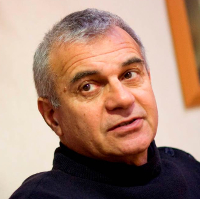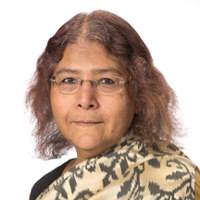Dialogue on Knowledge and Democracy
Short Film Contest
See this pdf for contest details.
Presented by the Royal Society of Canada (Atlantic), CBC Ideas and Memorial University
There is pervasive and growing unease in many sectors in Canada about our institutional capacity to produce the knowledge required to sustain a healthy democracy and to provide the foundation for sound policies and practices. Such ability is essential if we are to respond to the profound local and global challenges of the 21st century. At the beginning of the 21st century, the legitimacy and complexity of careful and informed knowledge production have come into question. Furthermore, major changes are underway within and between government, universities, media and civil society in the absence of an informed discussion about what kinds of institutions, capabilities and resources will be required in Canada in the future. This gap is a fundamental problem that could jeopardize this country’s democratic governance, as well as equity, sustainability and future prosperity. This Atlantic Royal Society, CBC Ideas, Memorial University Dialogue on Knowledge and Democracy will help fill this gap. Our overarching objective is to contribute to a larger and more sustained dialogue on these issues in the province and nationally over the coming months.
Tuesday, Oct. 6
12 to 2 p.m. - SN2000 - Meet and Greet Dr. Harry Collins, Distinguished Research Professor and Diector of the Centre for the Study of Knowlege, Expertise and Science, Cardiff University.
7 p.m., Bruneau Centre IIC 2001 - Screening of Hands On: Women, climate, change (2014). A film profiling five women from four continents who are tackling climate change through policy, protest, educaiton and innovation. The film powerfully demonstrates how women are transferring knowledge and local networks into hands-on strategies. Co-sponsored by Cinema Politica St. John's. Discussants include Dr. Mark Stoddart and Dr. Max Liboiron, both from the Department of Sociology.
Wednesday, Oct. 7
6:45 to 7 p.m. - Bruneau Centre IIC 2001 - Slide presentation of visual artist and Memorial's Office of Public Engagement postdoctoral fellow Pam Hall's Fogo and Change Islands Encyclopedia of Local Knowledge
7 to 9 p.m., Bruneau Centre IIC 2001 - "Science and Democracy: The New Synthesis" - Keynote address by Dr. Harry Collins, Distinguished Research Professor and Director, Centre for the Study of Knowledge, Expertise and Science (KES) at Cardiff University. Presentation followed by cocktail reception. Moderated by Paul Kennedy, host of CBC Radio Ideas.
Summary: Up to around the middle of the 20th century, it was thought that the same scientific facts could be proved to be true wherever you were brought up; if there was doubt, repeat the experiment or observation. The second half of the 20th century witnessed a revolution in our understanding of the nature of science. We found that scientific knowledge could not and did not exist in a realm of certainty isolated from society. We learned that scientific findings could and must be be influenced by social context. But does this mean we are all experts now and any claim to special expertise is in some sense anti-democratic? Dr. Collins will seek to show how to preserve and reconcile the idea of science with the idea of democracy and with a half-century of enrichment of our understanding of science and its relationship to social context.
 Bio: Harry Collins is Distinguished Research Professor and Directs the Centre for the Study of Knowledge, Expertise and Science (KES) at Cardiff University. He is an elected Fellow of the British Academy and a winner of the Bernal prize for social studies of science. He has served as President of the Society for Social Studies of Science. His 18 published books cover sociology of scientific knowledge, artificial intelligence, the nature of expertise, and tacit knowledge. He is continuing his research on the sociology of gravitational wave detection, expertise, fringe science, science and democracy, technology in sport, and a new technique – the 'Imitation Game’. His latest book covers science and democracy and is called Are We All Scientific Experts Now?
Bio: Harry Collins is Distinguished Research Professor and Directs the Centre for the Study of Knowledge, Expertise and Science (KES) at Cardiff University. He is an elected Fellow of the British Academy and a winner of the Bernal prize for social studies of science. He has served as President of the Society for Social Studies of Science. His 18 published books cover sociology of scientific knowledge, artificial intelligence, the nature of expertise, and tacit knowledge. He is continuing his research on the sociology of gravitational wave detection, expertise, fringe science, science and democracy, technology in sport, and a new technique – the 'Imitation Game’. His latest book covers science and democracy and is called Are We All Scientific Experts Now?
Thursday, Oct. 8
12 to 1 p.m., D.F. Cook Recital Hall, School of Music - Music showcase and dialogue on music and democracy featuring Iranian musician Hadi Milanloo, US musicologist Daniel Hawkins and violinist Carole Bestvater. Moderated by Dr. Chris Tonelli.
7 to 9 p.m., Bruneau Centre IIC 2001 - "A Mature Modernity: Science and Skepticism in Democratic Societies - Keynote address by Dr. Sheila Jasanoff, Pforzheimer Professor of Science and Technology Studies at the Kennedy School of Harvard University. Presentation followed by cocktail reception. Moderated by Paul Kennedy, host of CBC Radio Ideas.
Summary: The debate about the role of science in governance shows dangerous signs of polarization. On one side are supporters of science who deplore public ignorance, loss of trust, and the willful distortion of scientific facts to suit political ends, on issues ranging from vaccination to gun violence to climate change. On the other are clusters of politically committed groups that point to science’s own subservience to liberal ideologies and government funding as reasons for distrusting the prevailing consensus. How, in democratic societies, can we carve out a golden mean, a place that allows mature and informed publics to question the institutional authority of science without abandoning reliance on well-supported facts and sound public reasoning? The answers lie importantly not in science’s claims to truth-telling but in recovering age-old concepts from political theory, such as representation, delegation and deliberation.
 Bio: Sheila Jasanoff is Pforzheimer Professor of Science and Technology Studies at the Harvard Kennedy School. A pioneer in her field, she has authored more than 100 articles and chapters and is author or editor of a dozen books, including Controlling Chemicals, The Fifth Branch, Science at the Bar, and Designs on Nature. Her work explores the role of science and technology in the law, politics, and policy of modern democracies, with particular attention to the nature of public reason. She was founding chair of the STS Department at Cornell University and has held distinguished visiting appointments in the US, Europe, and Japan. Jasanoff served on the Board of Directors of the American Association for the Advancement of Science and as President of the Society for Social Studies of Science. She has received a Guggenheim Fellowship, the Sarton Chair of the University of Ghent, and an Ehrenkreuz from the Government of Austria. She holds AB, JD, and PhD degrees from Harvard, and an honorary doctorate from the University of Twente.
Bio: Sheila Jasanoff is Pforzheimer Professor of Science and Technology Studies at the Harvard Kennedy School. A pioneer in her field, she has authored more than 100 articles and chapters and is author or editor of a dozen books, including Controlling Chemicals, The Fifth Branch, Science at the Bar, and Designs on Nature. Her work explores the role of science and technology in the law, politics, and policy of modern democracies, with particular attention to the nature of public reason. She was founding chair of the STS Department at Cornell University and has held distinguished visiting appointments in the US, Europe, and Japan. Jasanoff served on the Board of Directors of the American Association for the Advancement of Science and as President of the Society for Social Studies of Science. She has received a Guggenheim Fellowship, the Sarton Chair of the University of Ghent, and an Ehrenkreuz from the Government of Austria. She holds AB, JD, and PhD degrees from Harvard, and an honorary doctorate from the University of Twente.
Friday Oct. 9
11:30 a.m. to 1:30 p.m. - SN 2000 Meet and Greet Dr. Sheila Jasanoff, Professor of Sicence and Technology Studies, Harvard Kennedy School
9 to 5 p.m. - Workshop, Junior Common Room. NOTE: The workshop is by invitation only and will be audio-recorded by CBC Radio Ideas for later broadcast.